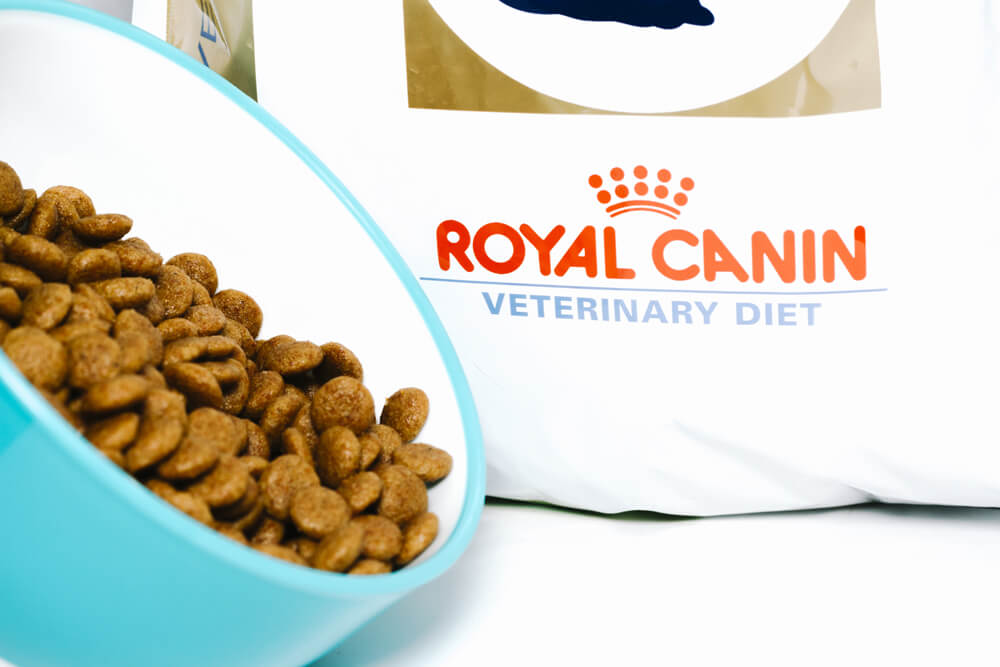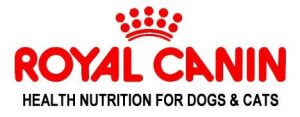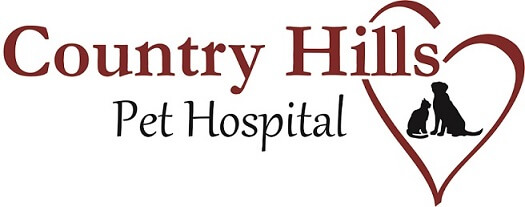
Grain Free?
In this day and age, marketing departments are coming out with impressive designs- images of wolves, Holistic/Grain & Gluten Free labeling, and brightly colored bags. Walk in to any pet store and you immediately notice the many different choices & brands of pet food. Purina, Iams, Nutro, Royal Canin, Science Diet, Rachel Ray, Blue Buffalo, Old Roy- the list goes on and on. Don’t be fooled by marketing ploys!

Ingredient debates have been a hot topic lately! Which one really is the best for your pet? What really are by-products? Is “organic” food worth the extra cost? Country Hills Pet Hospital is here to debunk these pet food allergy myths!
- Food allergies are actually uncommon, making up less than 10% (I repeat- only 10%) of your pet’s allergies! Flea bites and allergies to pollens, molds, and dust mites are the most common triggers to your pet’s itchy ears, skin, and paws. Not to mention, most food reactions come from meats (like chicken & beef) or dairy. Now this isn’t to say your pet can’t be allergic to grains, corn, carrots, beef, or chicken; it’s just not the only possible, or probable, cause! Short of allergy testing, it’s guesswork as to what exactly your pet is allergic to.
Actually did you know that wheat and corn are highly digestible and provide nutrients like carbohydrates and fatty acids? Some grain-free diets may even include a higher amount of fat & calories by substituting starches (like potato) for whole grains. If your pet truly has severe food allergies, a veterinary diet is the best choice. These diets have hydrolyzed proteins that have all the nutrients of a balanced diet without the properties of the foods that actually cause the allergic reaction. - By-products/Meal (sounds gross right) makes you think of meat that is unfit to eat. On the contrary- it includes organs such as the liver, lungs, and heart as confirmed by the American Association of Feed Control Officials. If your pet was in the wild and on its own for lunch- these organs would be where they would dig into first! Chicken meal is dehydrated and defatted chicken which is very digestible and a good source of concentrated protein.
- Organic diets may sound like the option to go for us, but the word organic, in this case, does not refer to quality. Organic, when it comes to pet food, just means the plants/animals of how they were grown/raised is processed differently. These diets consist of flax seed instead of marine plants and fish as a source of fatty acids. However they lack EPA and DHA- major omega-3 fatty acids that support skin health, joints, and kidneys.
- Raw/homemade diets are generally not recommended for your pet. The FDA has made statements regarding public safety from significant health concerns when raw materials are used in the home. Homemade diets also often lack all the proper nutrients, vitamins, and minerals that a commercially made pet food has.
- One size fits all- these diets are not a good fit for your pet. Puppies need different ingredients focusing on growth and development while senior pets need ingredients that help the joints & body.
Did you know Dr. Thompson and Dr. Winske recommend Royal Canin? They are the only pet food company that has their own staff of veterinary scientists used to generate their pet food formulas. They also use their own manufacturing plants for their food- cutting down on cross contamination of materials. All of their diets are 100% guaranteed and highly palatable. With a wide range of both over the counter (even breed specific) and veterinary prescription diets (& treats too), there’s a complete diet for all of our pet’s needs.

Before switching your pet’s food, consult with your veterinarian to find out which diet is best for your pet! Switching foods around can cause stomach upset in your pet- diarrhea, vomiting, in appetence, etc. Remember, no pet food is ultimately “wrong” for your companion, however there are guidelines, truths, and plenty of myths to consider when walking those long aisles at the pet store.
